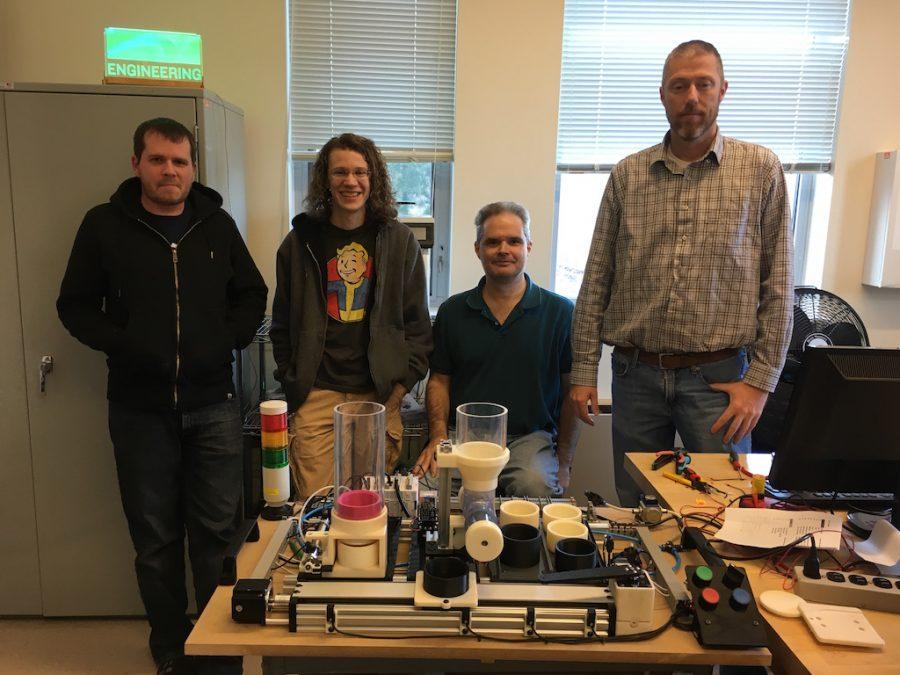Program helps high schoolers
AACC engineering students build a training device to help high school students entering the manufacturing field.
March 31, 2017
AACC engineering stu- dents are building a low-cost training device to help high schoolers enter the modern manufacturing field.
The prototype “trainer” will help high schools and colleges teach technical skills used in mechatronics, a pro- gram at AACC that combines mechanics, electronics and software.
Most trainers cost around $90,000, according to mechatronics professor Tim Callinan. AACC has one training device in its engi- neering lab.
“A lot of high schools, a lot of colleges, want to teach mechatronics,” said Calli- nan. “The problem is, how is a high school supposed to afford $90,000?”
The trainer in development at AACC uses a number of on-the-shelf and 3-D-printed parts. Callinan expects it to cost about $1,500 per device.
AACC students have been working on the trainer since fall, putting in around six hours of lab time most Fridays, as well as hours at home and on the weekends.
“It’s worth that much to us,” said Stuart Thomas, a mechatronics major who works on electronics and drafting for the trainer.
Students will complete the trainer by July, when they will unveil it at the Sum- mer Working Connections training workshop at Florida State College at Jacksonville.
High school teachers will have the opportunity to attend SWC each year to learn how to use the device.
AACC won nearly a quarter million dollars in federal grant money in Oc- tober to build the trainer and teach people how to use it. AACC will receive the money over three years.
The CollaborATE grant, funded by the National Science Foundation, includes three other schools, each with a different amount of funding and a different role in promoting mechatronics education.
CollaborATE builds on a previous grant—the U.S. Department of Labor’s Trade Adjustment Assistance Com- munity College and Career Training grant—which led to the creation of the AACC mechatronics program.
The National STEM Consortium, a group of 10 colleges led by AACC, won $19.7 million in 2011 to study new science and technology
certificate programs.
The mechatronics program has associate’s degrees.












